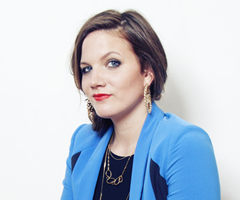 Dear Isabel,
Dear Isabel,
I understand that a focus on “weight control” is what’s behind most restriction (and subsequent binge/emotional eating behaviors). For the sake of my own healing, I’d like to get on the body-positivity train, but it’s hard to let go of dieting in a society that *really does* judge people on the basis of size. I have a deeply set fear that if I get bigger, I won’t be loved, I won’t be chosen for jobs as easily, I won’t be noticed—how do I overcome this fear when I see it happening around me all the time?
xo Anonymous
____________
Here’s the short answer to this question:
Yes, we live in a highly oppressive world—towards all marginalized groups on the spectrums of race, gender, size, ability, age, class and various other factors.
Weight discrimination is not just “in your head,” and healing your relationship with your body may mean learning to navigate an incredibly violent and prejudicial culture without hurting yourself or causing yourself further harm.
That being said—I don’t know many people who are made happier, or healthier, by *participating* in their own oppression—by agreeing with, perpetuating, or acquiescing to the demands of cultural mandates that are fundamentally designed to oppress them.
It’s worth asking yourself the question—are you really happier trying to conform to a particular weight standard, than you would be rejecting those standards and being true to yourself—even in the face of judgment?
Are you happier doing the *constant* labor of harming yourself so you can look like something that isn’t natural to you? Likely without any long-term ‘success’ in these efforts anyway?
Are you happier suffering at the hands of restriction, food obsession, diet-binge cycling? Weight-cycling up and down?
Are you happier spending your numbered days on this planet trying desperately to conform at the cost of your own health, sanity, and freedom?
Yes, you may incur judgment by being your natural size—and given the long-term success rates of dieting, you’ll likely incur the same judgment whether you choose to diet or not,
but is incurring the judgment of some fatphobic people really *more* scary than living in a constant state of self-harm, with no promise of safety from that judgment regardless?
Like most people, I battled a deep fear of judgment when I first gave up dieting—but that fear seemed infinitely more manageable when I honestly considered my alternative.
At some point, it felt less scary to stand up to fatphobia, than continue pandering to bigotry, ignorance, and hate.
That’s the short answer.

 One of the most powerful tools I ever developed for recovering from a “bad binge,”
One of the most powerful tools I ever developed for recovering from a “bad binge,”
 Recovering from diet-binge cycling,
Recovering from diet-binge cycling,